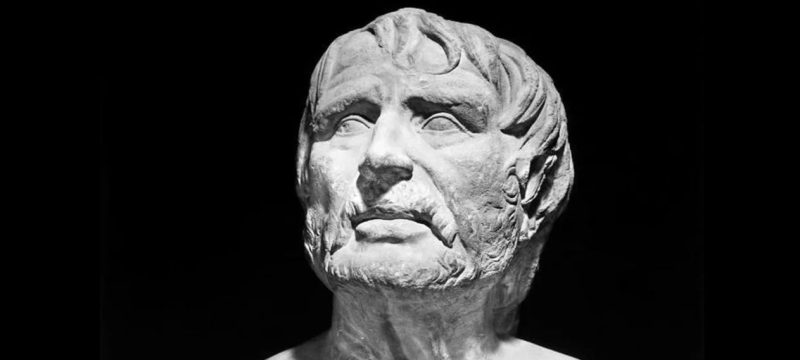Seneca, also known as Lucius Annaeus Seneca the Younger, was a Stoic philosopher, statesman, and writer of Ancient Rome. He is remembered for his moral essays, tragic plays, and guidance as a tutor and advisor to Emperor Nero. Seneca’s life was full of achievements, exile, and political challenges. In this article, we explore the life, work, and enduring influence of Seneca.
Early Life and Family
Seneca was born in Córdoba, Hispania, between 4 and 1 BC. His father, Seneca the Elder, was a respected writer and teacher of rhetoric. Seneca’s mother, Helvia, came from a prominent family. He had two brothers: Lucius Junius Gallio Annaeanus and Annaeus Mela, the father of poet Lucan.
Seneca moved to Rome at a young age and received education in literature, rhetoric, and philosophy. He studied under notable teachers, including Attalus the Stoic and Sotion, combining Stoicism with Pythagorean ideas. Seneca also practiced vegetarianism for a short time.
Despite facing lifelong health issues, including breathing difficulties and tuberculosis, Seneca developed a strong foundation in philosophy and public speaking.
Political Career and Exile
Seneca’s early career in Rome was promising. He gained praise for his oratory and held a Senate position. However, political tensions led to his exile in AD 41 under Emperor Claudius. The charge involved an alleged affair with Julia Livilla, though this accusation may have been politically motivated.
During exile on Corsica, Seneca wrote consolatory works, including Consolation to Helvia for his mother and Consolation to Polybius for a friend. These writings showed his Stoic approach to suffering, loss, and injustice.
He returned to Rome in AD 49, largely due to the influence of Agrippina, mother of the future Emperor Nero. Seneca then became Nero’s tutor and trusted advisor, helping shape the young emperor’s early reign.
Seneca as Nero’s Advisor
From AD 54 to 62, Seneca guided Nero alongside praetorian prefect Sextus Afranius Burrus. His advice promoted justice, moderation, and proper governance. Seneca also wrote speeches and public works for the emperor.
During this period, Seneca composed philosophical essays and the satirical work Apocolocyntosis, mocking the deification of Claudius. He also wrote On Clemency, which advised rulers to follow Stoic principles in governance.
Seneca gained wealth and property but faced criticism for profiting from high-interest loans. His influence declined after Burrus’s death in AD 62, and he began to retire from public life.
Philosophical Works
Seneca is known for his essays, letters, and tragedies. His writings explore morality, virtue, and human behavior. Key works include:
- Letters to Lucilius: 124 letters discussing Stoic philosophy and practical ethics.
- On the Happy Life (De Vita Beata): Explains how virtue and wisdom lead to true happiness.
- Naturales Quaestiones: A study of the natural world and its phenomena.
Seneca’s plays, such as Medea, Thyestes, and Phaedra, are tragedies that influenced Renaissance drama and European theater.
Personal Life
Seneca married Pompeia Paulina. His only known son died before Seneca’s exile. Despite personal losses and political challenges, Seneca maintained strong Stoic principles and encouraged resilience, self-control, and ethical living.
Death and Legacy
In AD 65, Seneca was ordered to commit suicide after the Pisonian conspiracy against Nero, although his involvement was likely false. He followed Stoic tradition, cutting his veins and taking poison while maintaining calm and dignity. His wife attempted to share his fate but survived.
Seneca’s death became a symbol of Stoic courage and moral fortitude. Over centuries, his works influenced philosophers, writers, and leaders. During the Renaissance, Seneca was admired as a moral guide and literary model.
Influence on Philosophy and Literature
Seneca’s impact extends beyond Rome. His writings shaped Christian thought, Renaissance humanism, and modern Stoicism. He emphasized:
- Virtue over wealth
- Control over emotions
- Acceptance of life’s challenges
- Rational thinking and ethical behavior
Seneca’s tragedies inspired playwrights like Shakespeare, and his essays remain relevant for personal growth, leadership, and ethics today.
FAQs About Seneca
Who was Seneca?
Seneca was a Roman philosopher, statesman, and writer known for his Stoic philosophy and tragedies.
What is Seneca famous for?
He is famous for his letters, essays on ethics, and tragic plays like Medea and Phaedra.
How did Seneca die?
Seneca died in AD 65 by forced suicide, following orders from Emperor Nero.
What is the legacy of Seneca?
Seneca influenced philosophy, literature, and ethical thinking, inspiring generations of thinkers and writers.
Final Thoughts
Seneca’s life was marked by learning, politics, and moral philosophy. From exile to advising an emperor, he maintained Stoic principles. His writings, especially letters and essays, remain valuable sources of wisdom. Seneca’s life and philosophy continue to inspire readers worldwide, proving the enduring power of reason, virtue, and resilience.
Read More: Pakistan Highlights UN Of Global Risks To Stability







